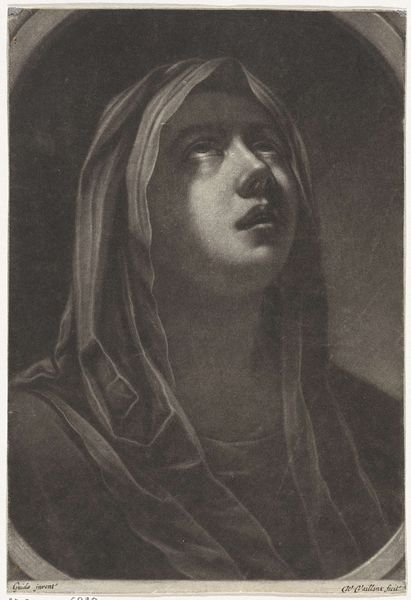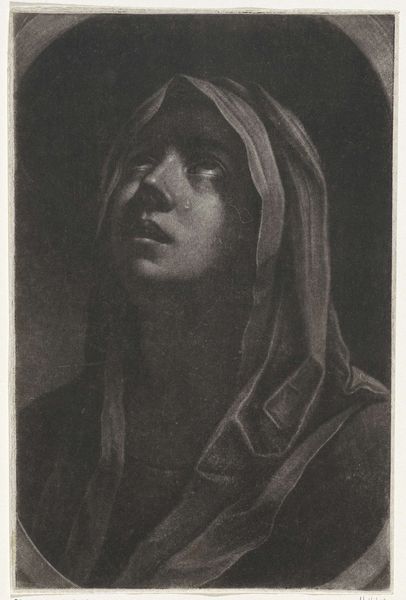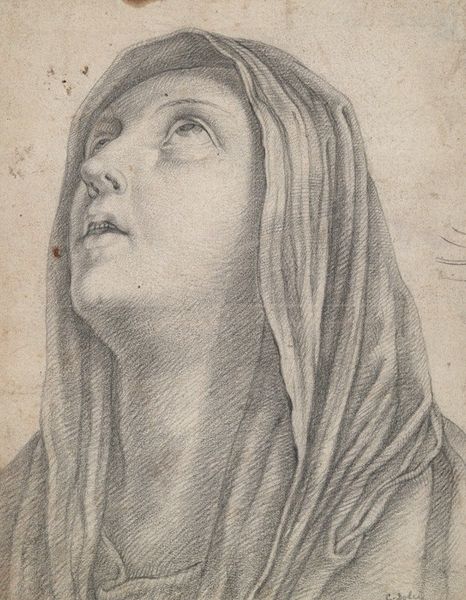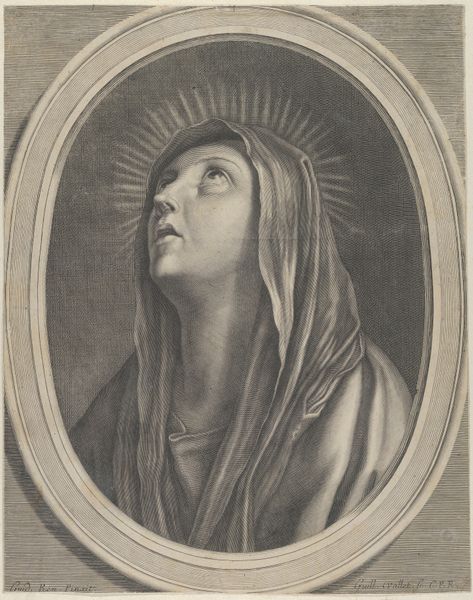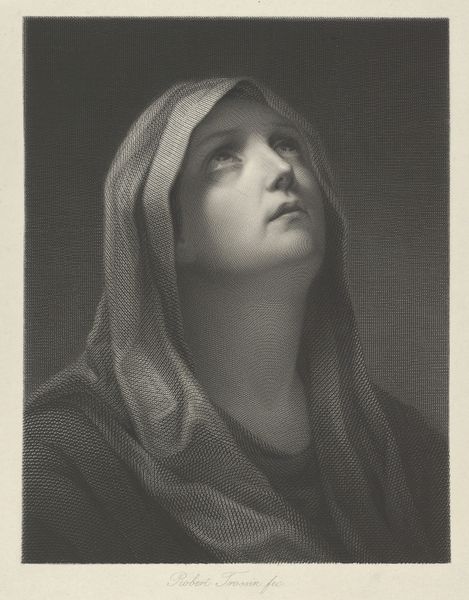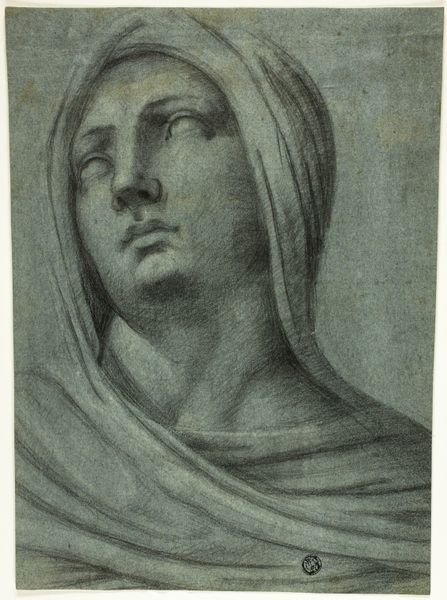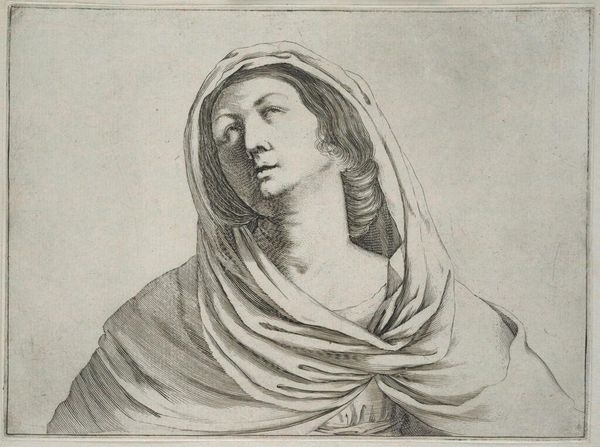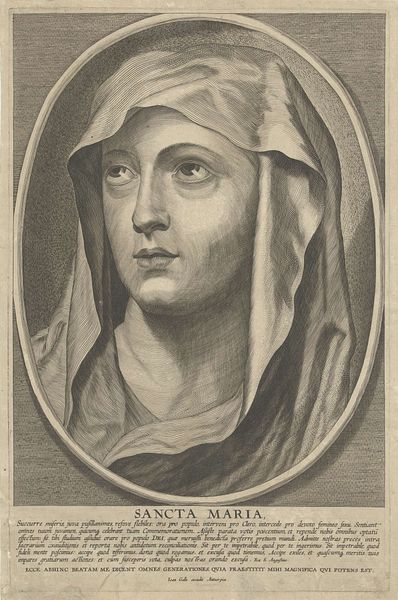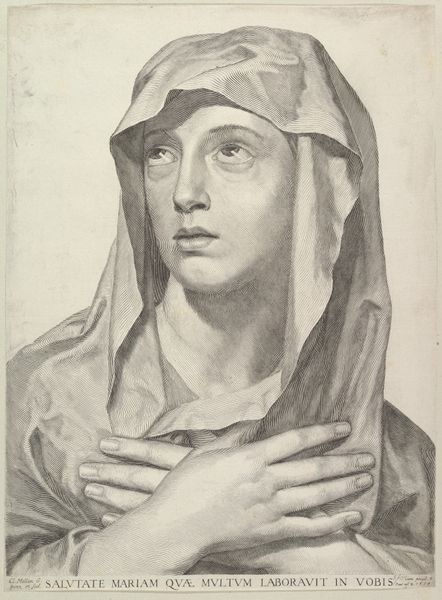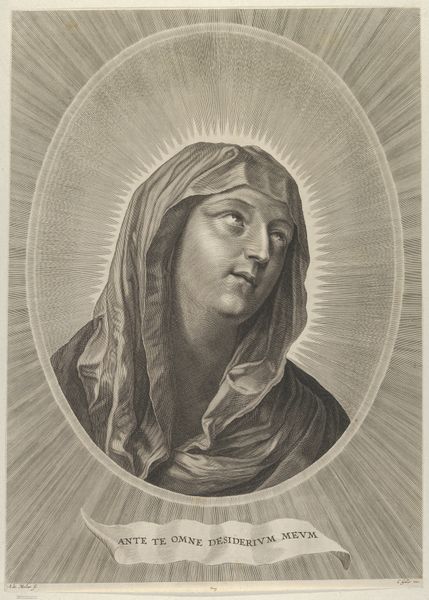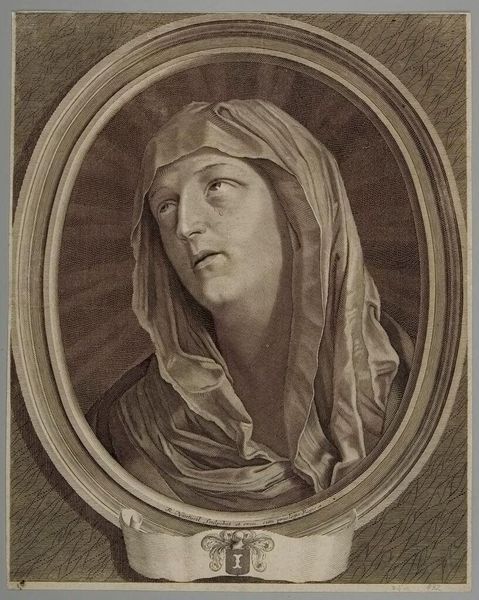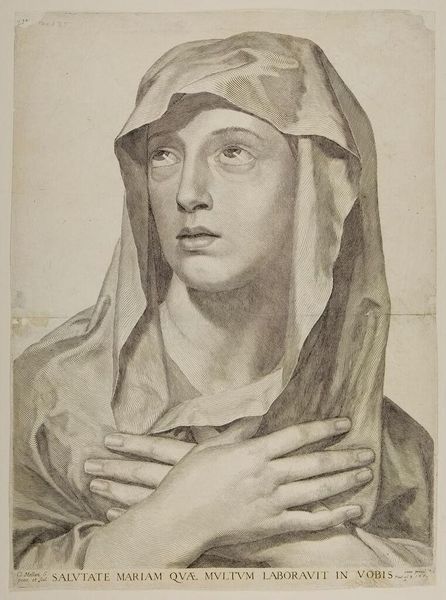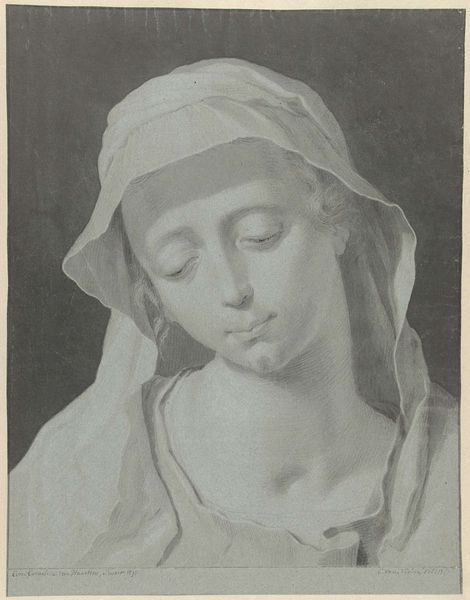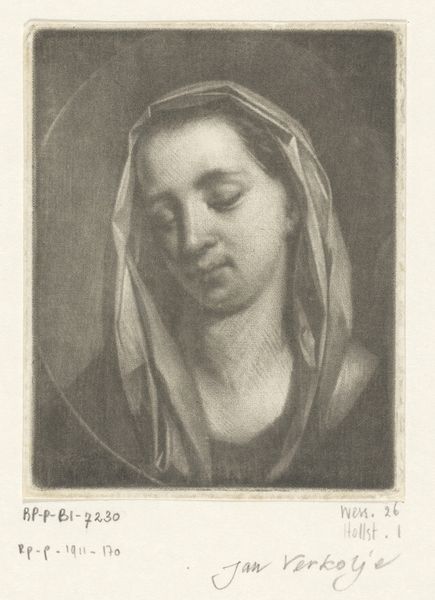
#
facial expression drawing
#
charcoal drawing
#
charcoal art
#
portrait reference
#
pencil drawing
#
animal drawing portrait
#
portrait drawing
#
facial portrait
#
portrait art
#
fine art portrait
Dimensions: height 199 mm, width 143 mm
Copyright: Rijks Museum: Open Domain
Curator: The sense of profound sorrow emanating from this work is striking. It’s Wallerant Vaillant’s *Mater Dolorosa*, believed to have been created sometime between 1658 and 1677. Editor: It's primarily gray, like ash. The fabric seems heavy, coarse even, yet the rendering has such delicate precision. Curator: Vaillant, known for his portraits, used charcoal and perhaps some chalk to capture the Virgin Mary's grief. The symbolism here is rooted deep in Christian iconography: the downcast eyes, the single tear – embodiments of suffering and maternal love. This representation connects viewers to centuries of devotion. Editor: You're right, but think of the physical act, the charring of wood to create these lines. Charcoal is such a basic material, easily made. Yet the skill involved transforms something so simple into something… charged. What kind of charcoal did he have access to? How long did it take? I can't help but wonder about his process. Curator: Those choices also emphasize humility, perhaps. Mary's suffering, her sacrifice, wasn't about ostentation, but raw, personal anguish. Vaillant captures that vulnerability with startling realism, echoing themes of penance, atonement. The portrait format itself, traditionally used for royalty, now elevates an altogether different kind of power. Editor: Right. Charcoal also dusts and crumbles. A difficult material to manage, especially for the delicate highlights on her face and veil. Vaillant needed to know the materials and the effects of pressure and strokes. The medium gives an impression that any breath could erase or smudge all that the artist made with time and effort. Curator: I see what you mean; this inherent fragility underscores the ephemeral nature of sorrow. It resonates across time. What does it whisper to you as a viewer? Editor: To me it whispers, above all, of what an incredible skill he used for the materials available. He used readily available resources and a mastery of technique to evoke something of great importance. I feel awed. Curator: For me, it whispers a quiet promise that suffering, while unavoidable, is a shared human experience. It's a powerful echo, carried across the ages.
Comments
No comments
Be the first to comment and join the conversation on the ultimate creative platform.
